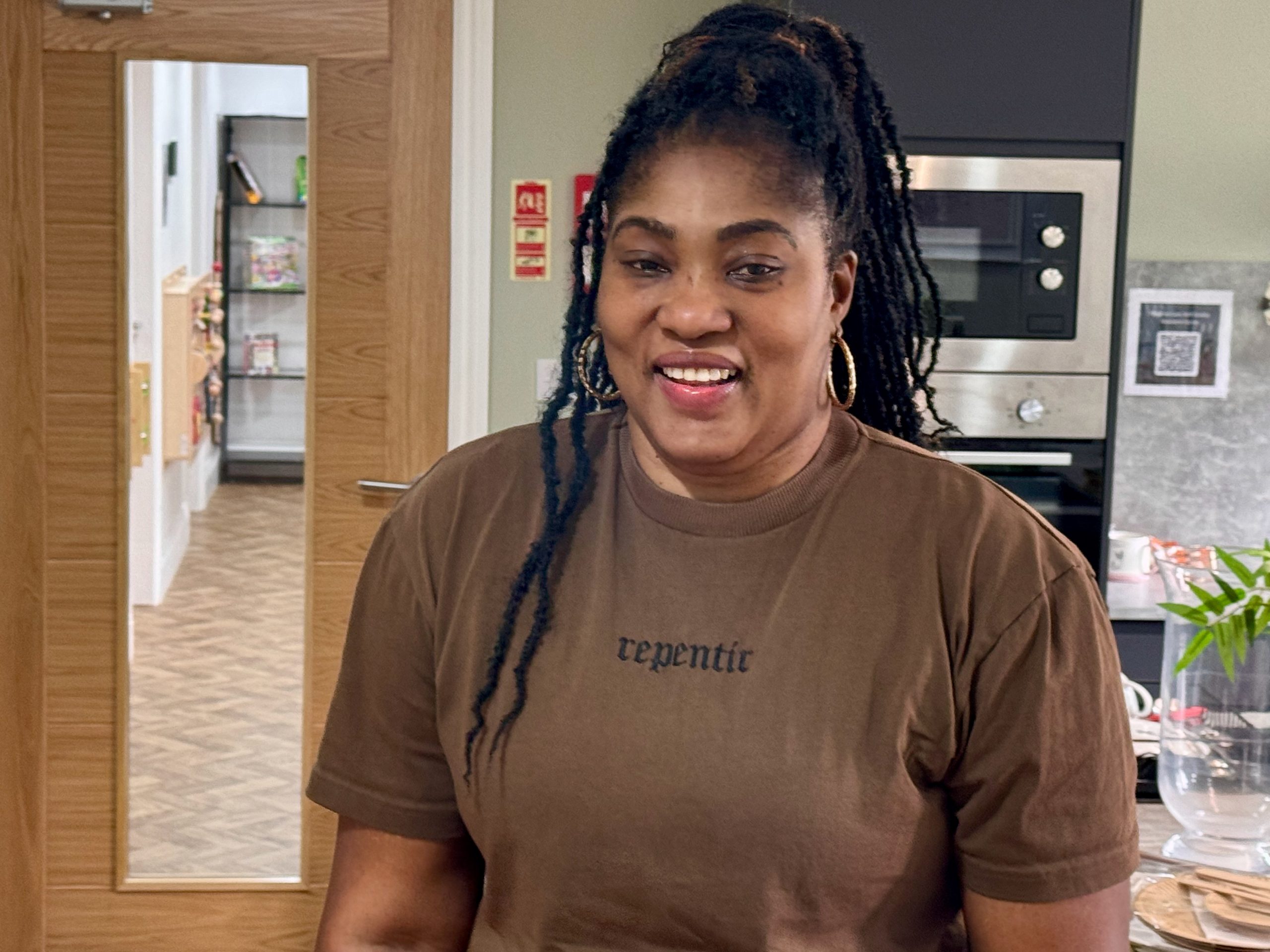This is not just about Hilton House or Progress. It is a journey into the thoughtful design that enhances the lives of children in care.
 When it comes to interior design, the goal is often to create spaces that are visually appealing and stylish. However, at Progress Care Solutions (widely referred to as Progress), interior design serves a more profound purpose. It’s about crafting environments that cater to the unique sensory needs of children in care, and Preet Anand, the interior designer behind it all, is passionate about making a difference.
When it comes to interior design, the goal is often to create spaces that are visually appealing and stylish. However, at Progress Care Solutions (widely referred to as Progress), interior design serves a more profound purpose. It’s about crafting environments that cater to the unique sensory needs of children in care, and Preet Anand, the interior designer behind it all, is passionate about making a difference.
Preet Anand, founder of Mood Interiors, has been instrumental in redefining the role of interior design at Progress’ homes. She believes that inhabited spaces should empower and enable individuals, especially children with special needs. “Interior design is not just about aesthetics; it’s about improving lives,” says Preet.
Progress, an organisation dedicated to providing top-tier care for children, especially those with special needs, has long adopted an approach that goes beyond mere functionality. The philosophy is clear: it’s not the children who are disabled; it’s the environment that can be disabling. And that’s where Preet and her expertise come into play.
The Sensory Design Philosophy
In their research on the effect of light and colours in the built environment on autistic children’s behaviour, Ashwini Sunil Nair and colleagues reported that different hues have varying effects on autistic children, with many neutral tones and mellow shades proven to be autistic-friendly with their calming and soothing effect, while bright, bold, and intense colours are refreshing and stimulating. They also reported that the stimulus of bright-lighting causes behavioural changes in autistic children prone to light sensitivity. You can access the study here.
Preet, noted that the autistic spectrum is sometimes/typically sensitive to colours with deeper tones which is why she always keep to pastels when designing these types of homes. “I always avoid red and pink where possible, due to the adverse (triggering) effect. Other than that, the colours used are calming and positive.”
She noted Progress’ newest home, Hilton House’s “harmonising” colour selection, is based on blue to evoke a sense of serenity in the home.
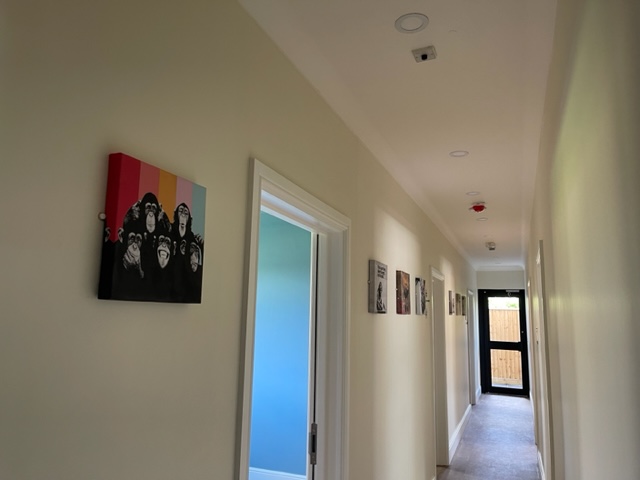
Blue is calming; green is encouraging (growth), yellow increases appetite, so works well in the dining room.
“Blue is calming; green is encouraging (growth), yellow increases appetite, so works well in the dining room. Lilac is said to help reduce aggression (but was mainly for the consistency of cool colour tones),” says Preet.
At the core of Progress’ approach to interior design is the concept of sensory design. The organisation utilises principles such as space, colour, texture, form, and light to create spaces that meet the unique sensory requirements of the children they care for. These principles are not just about aesthetics; they are fundamental in addressing the sensory needs of the children.
Preet and her team approach each project by understanding the specific needs of the children. She described it as a comprehensive process that takes into account the individual requirements of each child. “When it comes to space,” Preet explains, “we need to make sure the environment accommodates high-energy situations, as well as rapid movement for those with mobility challenges.”
In sensory design, colour plays a pivotal role. Preet says, “Colours can have a profound impact, especially for children with autism. We strive to create adaptable spaces where colours can be changed to suit individual preferences, ensuring the environment remains stimulating and comforting.”
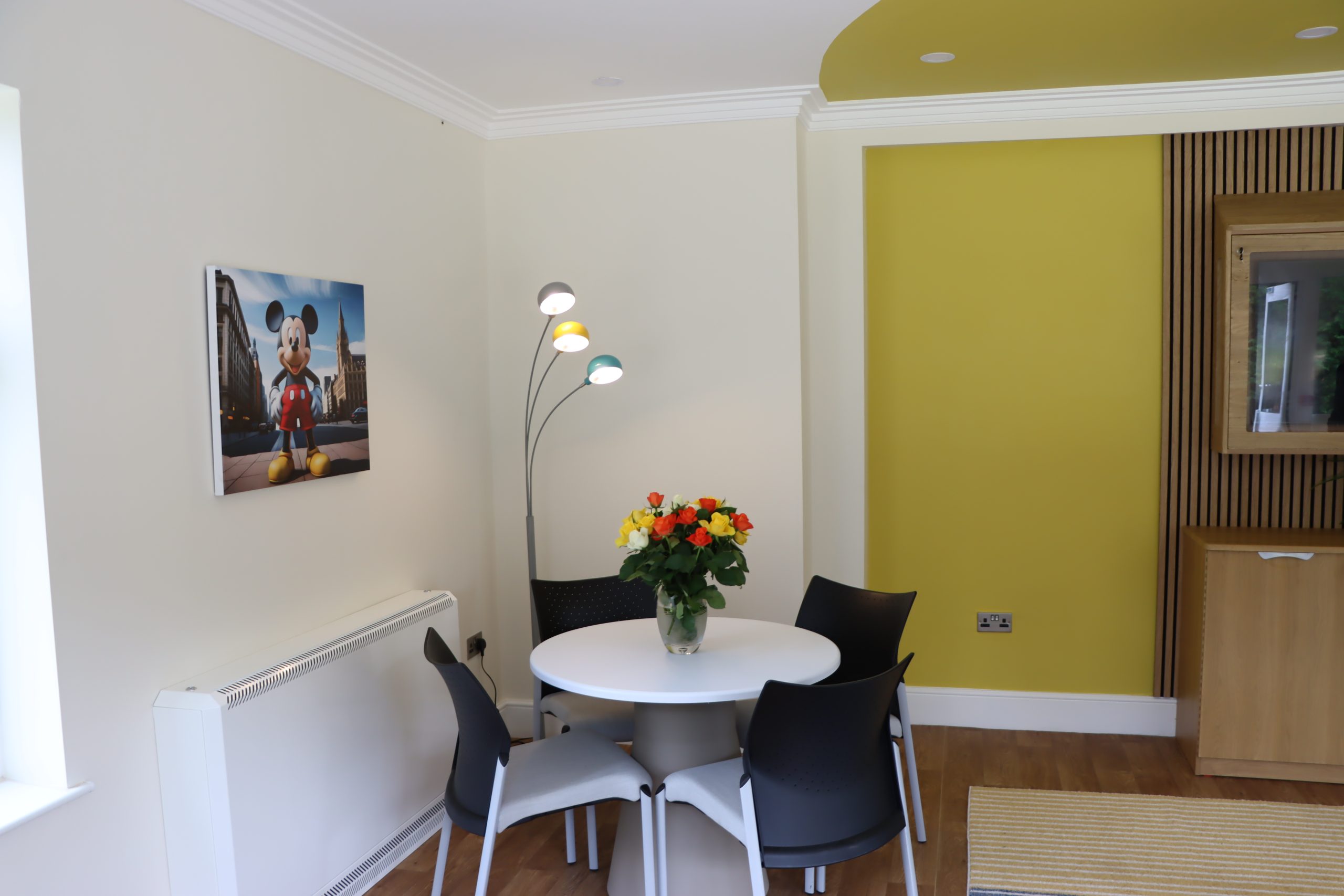
The Role of Texture and Materials
The materials used in sensory design are chosen with care. Furniture materials must be durable and easy to clean, as children in these environments may interact with them differently than in mainstream settings.
Preet notes, “Furniture needs to be both functional and safe, taking into account the possibility of challenging behaviours.”
Sound, too, is carefully managed. Acoustics and sound regulation are paramount, creating a comforting auditory environment for children. “Good sound-bouncing practises are essential to ensure that children can have conversations without unnecessary distractions,” says Preet.
Natural Light, Personalisation and Durability
The exposure to natural light is vital in creating a sensory-rich environment. It helps regulate the body’s systems and is particularly significant in homes where children may not always have the opportunity to be outdoors.
“We ensure that the exposure to natural light is optimised to help children connect with their surroundings and understand the time of day,” Preet explains.
One of the key elements in Progress’ design philosophy is personalisation. Each child should have the freedom to personalise their living space, just like any other child. Even if they require specialised furniture or equipment, their personal touches, whether it’s a favourite colour or a beloved theme, can make the space uniquely theirs.

In a space that is carefully designed to meet the sensory needs of children, personalisation remains a significant aspect. It’s about creating an environment that can become a home, a place of comfort and familiarity.
For children with special needs, personalisation extends to the ability to make the space uniquely theirs. From a favourite colour on the walls to beloved themes or characters, Progress ensures that each child can add their personal touches to their living spaces. The goal is to create an environment that is not just functional but comforting and inviting.
But durability is also a crucial consideration.
Furniture and materials are chosen not just for their visual appeal but also for their ability to withstand the rigours of daily use in a care environment. Progress believes in making the right investments in high-quality, durable furniture that ensures the safety and comfort of the children they serve.
Progress’ homes holistic approach
What sets Progress’ homes apart is the dedication and passion of its staff. As Preet observes, “Progress is not just about providing care; it’s about making a difference in the lives of children. The staff sees this as a passion, not just a job.”
She noted that the care provided at Progress is unmatched, and the commitment of its staff is evident in the way they maintain the spaces. “A well-designed environment can empower and enrich the lives of children with special needs,” says Preet. “The passion and dedication of the staff play a crucial role in making this vision a reality.”
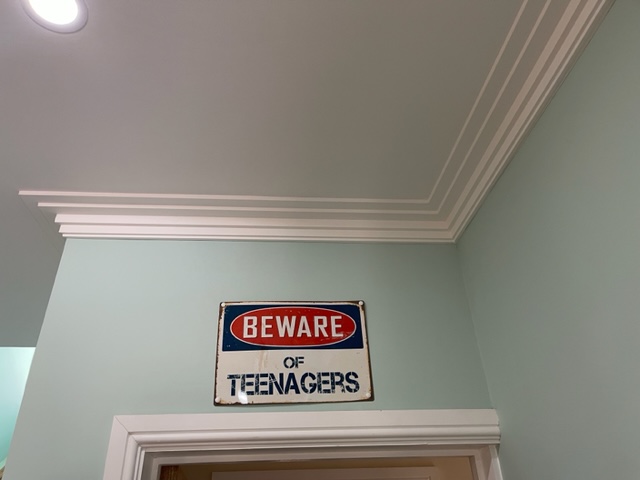
Interior design at Progress’ services is more than aesthetics; it’s about enriching lives and enabling children to thrive. The sensory design philosophy, crafted by Preet, has transformed the way these homes are experienced. Progress recognises that well-designed spaces can create environments where children feel safe, comfortable, and empowered.
Redefining the role of interior design in the care sector
Progress, working with Preet, are redefining the role of interior design in the care sector. The redefinition is based on the understanding that a well-designed environment can empower and enrich the lives of children with special needs. By carefully considering space, colour, texture, form, and light, Progress has created spaces that cater to the unique sensory needs of the children, making their homes truly enabling and empowering.
Preet acknowledges the passion and dedication of Progress’ staff. “These individuals don’t just see it as a job; they see it as a calling,” she explains. The caring and empathetic approach of the staff plays a crucial role in creating an environment where children feel safe, comfortable, and empowered.
The impact of interior design in a care setting goes beyond the aesthetics; it extends to the emotional well-being of the children. Progress recognises that providing care isn’t just about meeting physical needs; it’s about creating a holistic environment where children can thrive emotionally and psychologically.
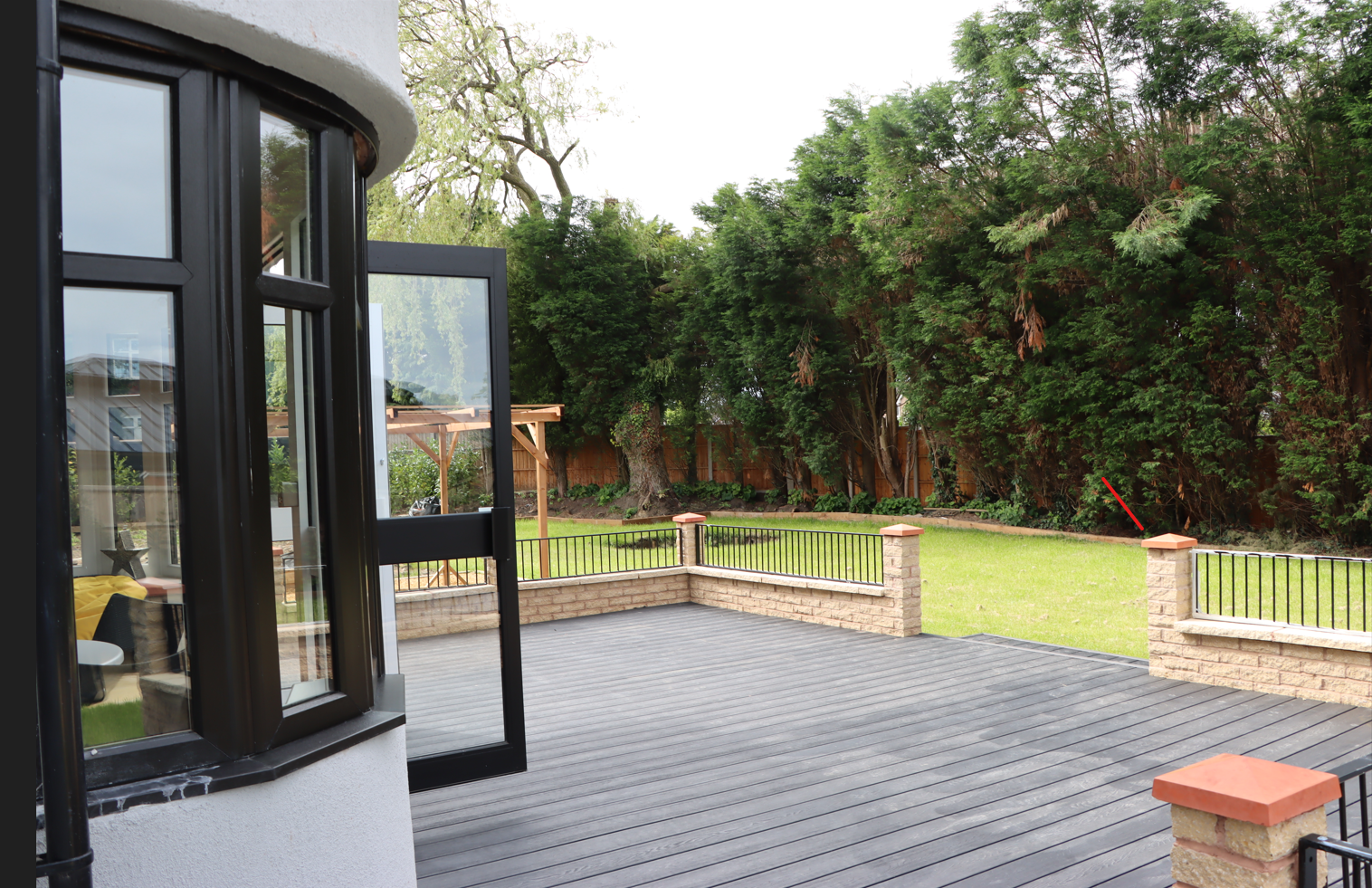
Preet elaborates, “We design spaces to provide comfort, a sense of belonging, and an environment where children can express themselves.” This houlistic approach includes the intentional use of soft furnishings, personalisation, and adaptable spaces, enabling children to find solace and engage with their surroundings in their own unique way.
Preet believes that a well-designed environment fosters a sense of empowerment. Progress understands that children with special needs can thrive when they are in spaces that allow them to express themselves and feel in control.
“An empowered child is a confident child,” says Preet. The empowering environment created by Progress allows children to develop self-confidence, self-esteem, and a sense of ownership over their spaces.
From its head office on Millfields Road, Wolverhampton, to its services and homes spread across West Midlands, the environment within Progress serves as a safe haven for children who often face a world that can be overwhelming. The dedication of staff in maintaining the spaces and creating an inviting atmosphere plays a vital role in this.
Staff members are not just caregivers; they are keepers of the space. Their commitment to keeping the environment clean, well-maintained, and inviting is evident in the way children feel comfortable within these homes. In return, the spaces created at Progress foster a sense of belonging and trust.
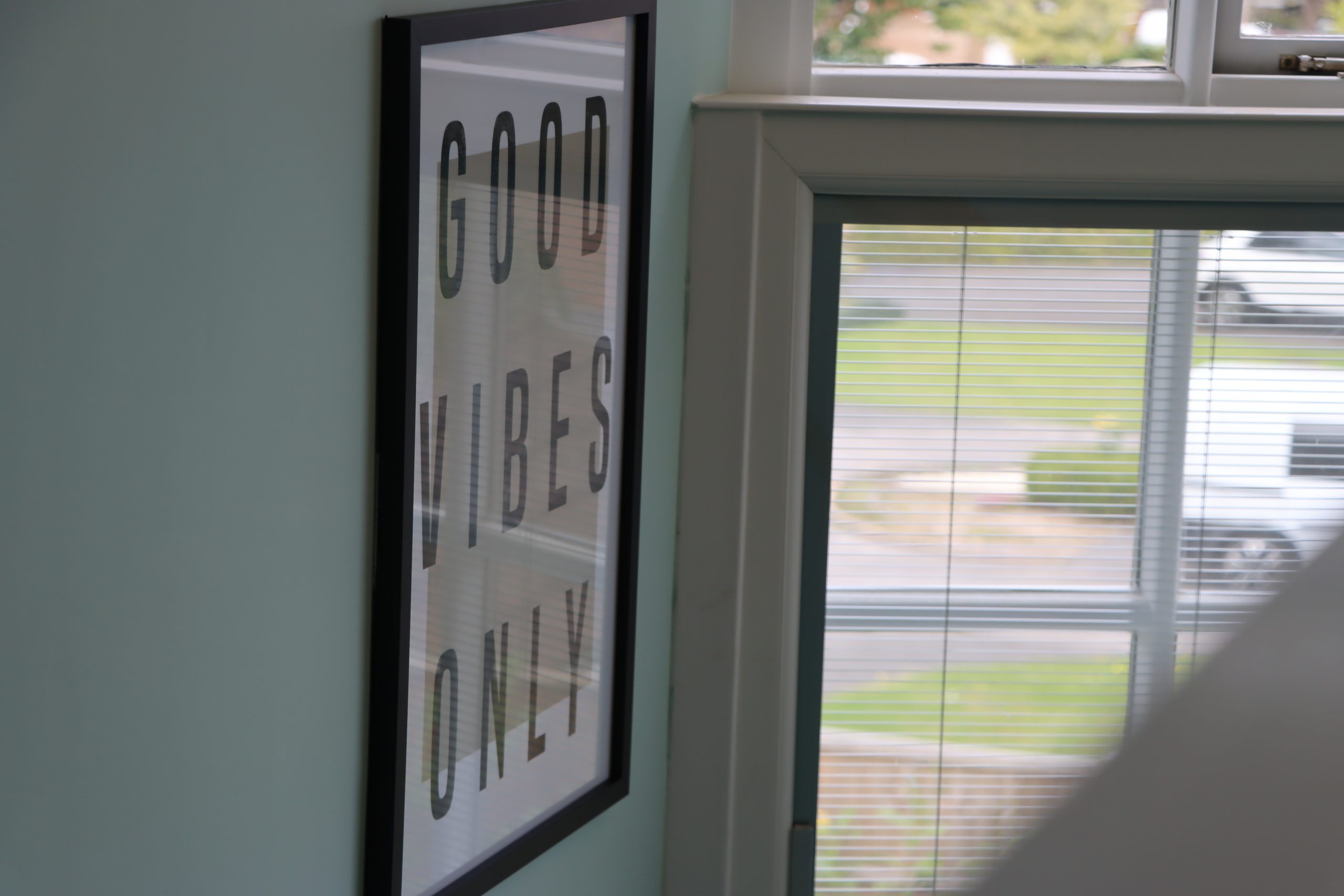
Hilton House’s beacon status of Progress’ vision
One of the finest examples of Progress sensory design is Hilton House. A vivid illustration of how thoughtful design can transform a space into a sensory-rich environment. Hilton House is a testament to the careful consideration of sensory needs. Its exterior may be minimally colourful but it’s once you step inside that the magic truly unfolds.
The Mood Interiors team, led by Preet, created a space that is more than just a home for the children at Hilton House. It’s a canvas of sensory experiences, a tapestry of comfort and engagement, designed with the children’s unique needs in mind.
The sensory richness extends beyond colours. Hilton House boasts a multitude of seating options, including chairs of different kinds and shapes, mood lights, among others. These options provide children with a range of choices in their seating, relaxation and activities arrangements, catering to their individual preferences and comfort.
The rooms at Hilton House are also adorned with sensory-rich elements, enabling children to engage with their environment and express themselves. From colour-changing lights to a thoughtfully selected colour palette, every detail contributes to the sensory experience.

Making sense of it all
Progress’ approach to interior design is a testament to its commitment to the well-being and growth of the children it serves. The role of Preet Anand and her team from Mood Interiors in shaping these spaces cannot be overstated.
By considering sensory design, personalisation, and a holistic approach to creating empowering environments, Progress stands as a beacon in the care sector. Its dedicated staff, who are passionate about their mission, are at the heart of this endeavour.
The synergy between the thoughtful design of spaces and the dedication of the staff is where the magic happens. Children in Progress’ care are given more than a home; they are offered spaces where they can flourish, express themselves, and grow in confidence.
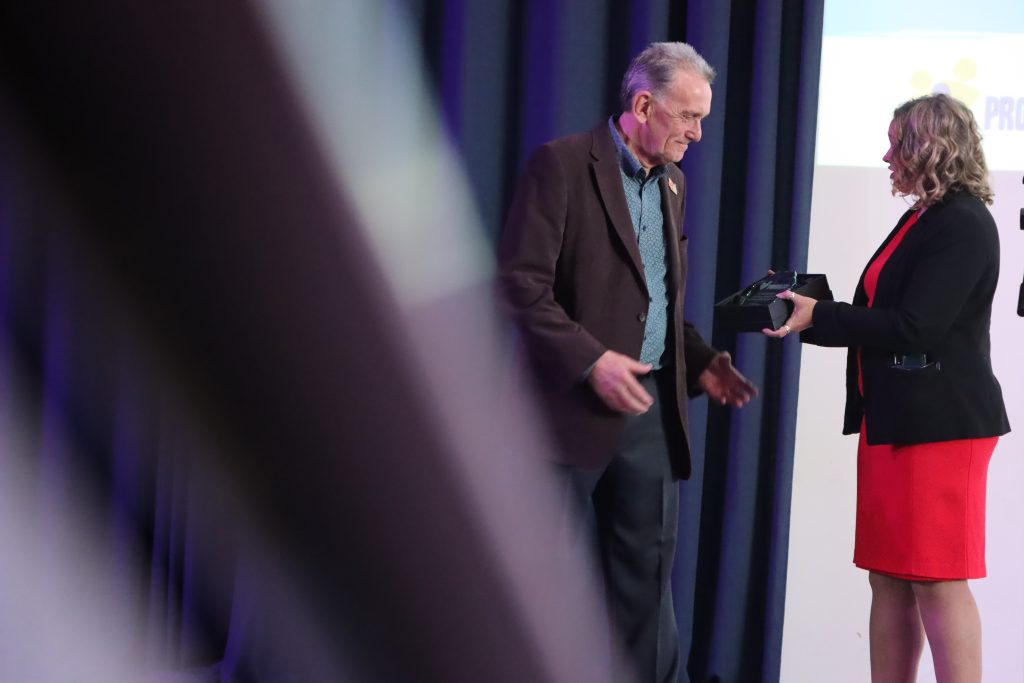





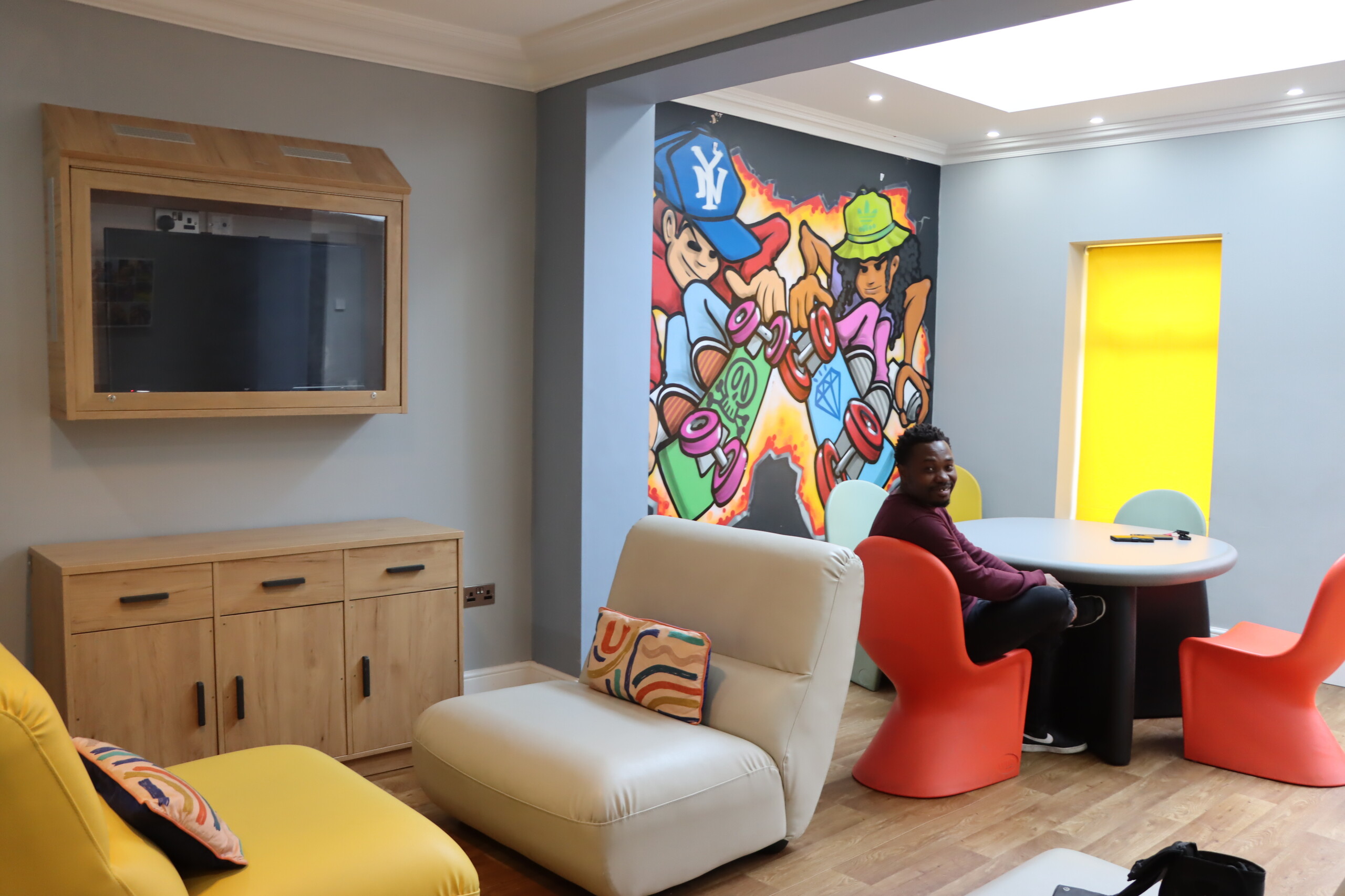
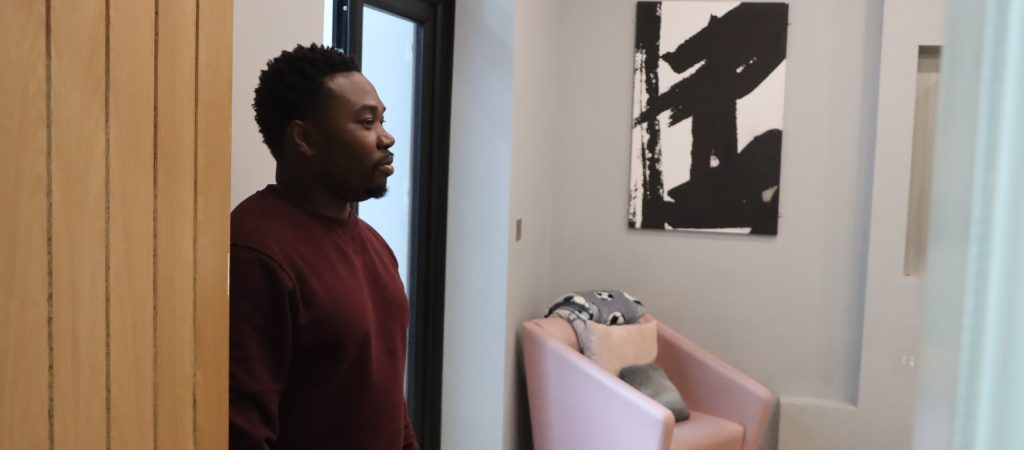
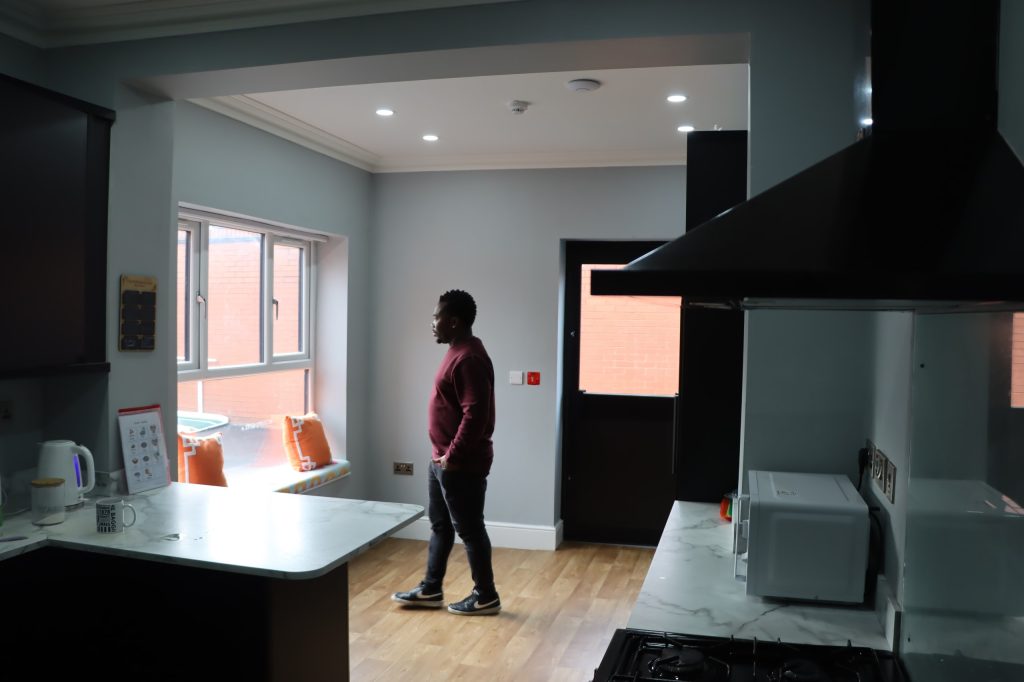
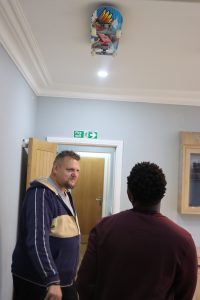
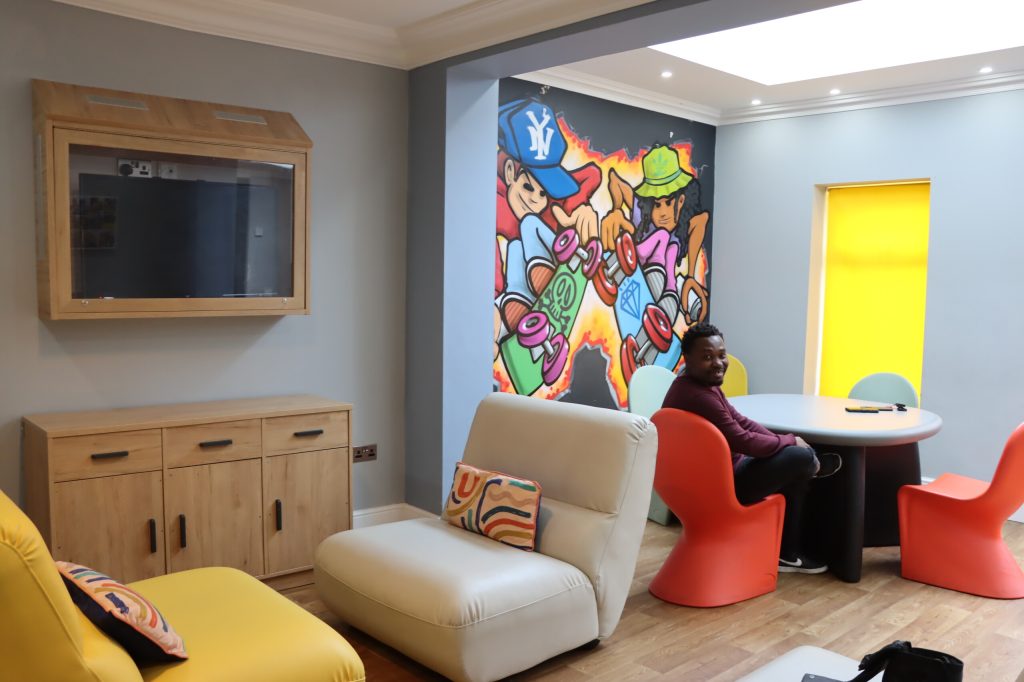
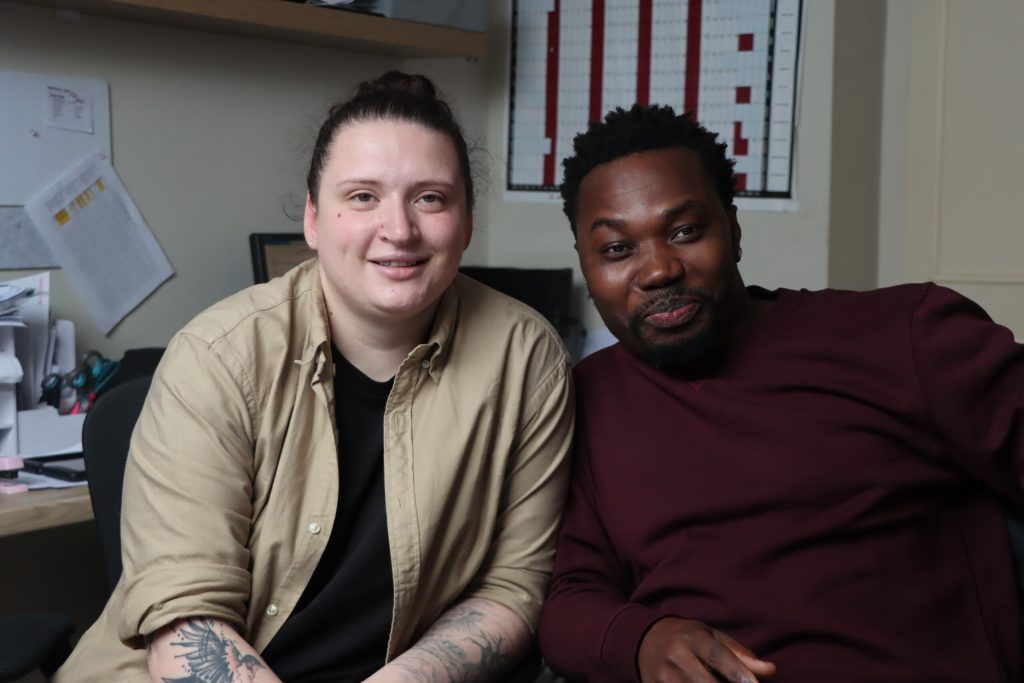


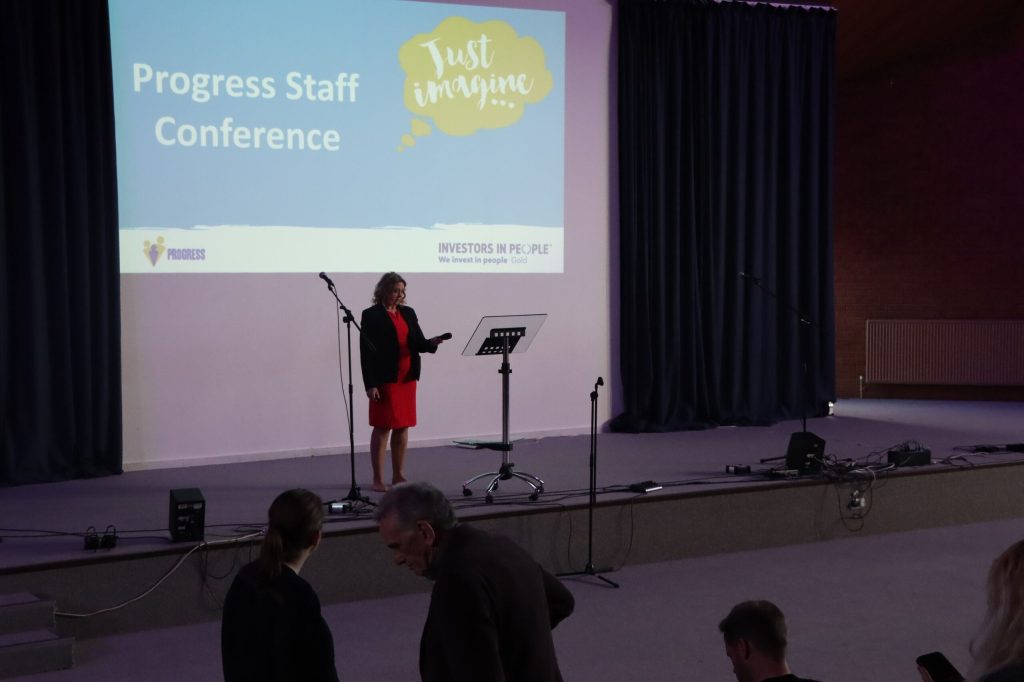
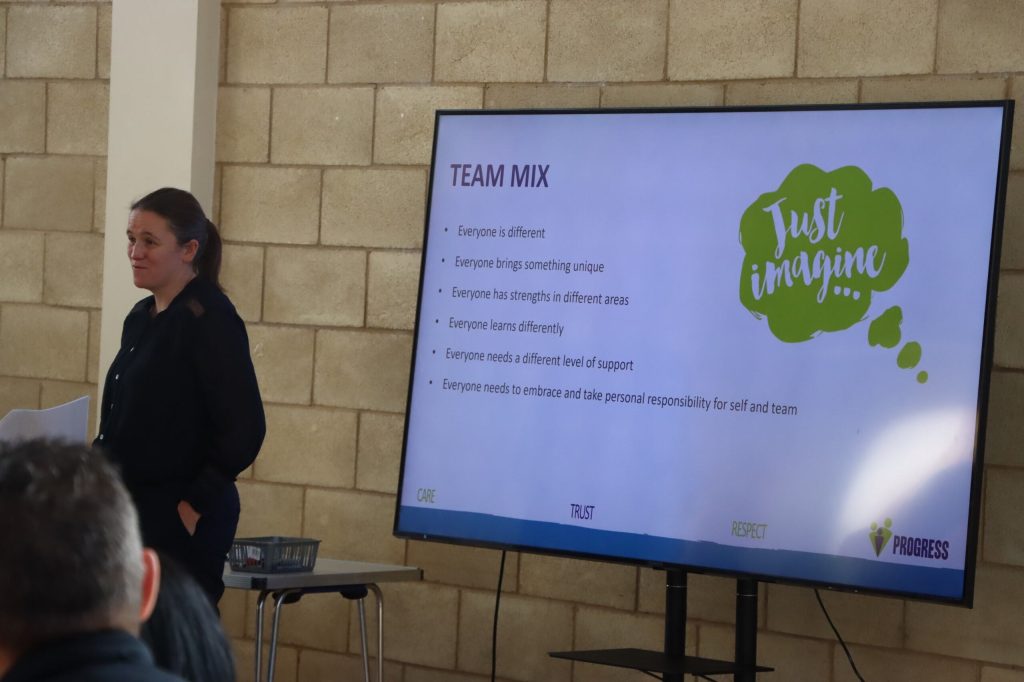



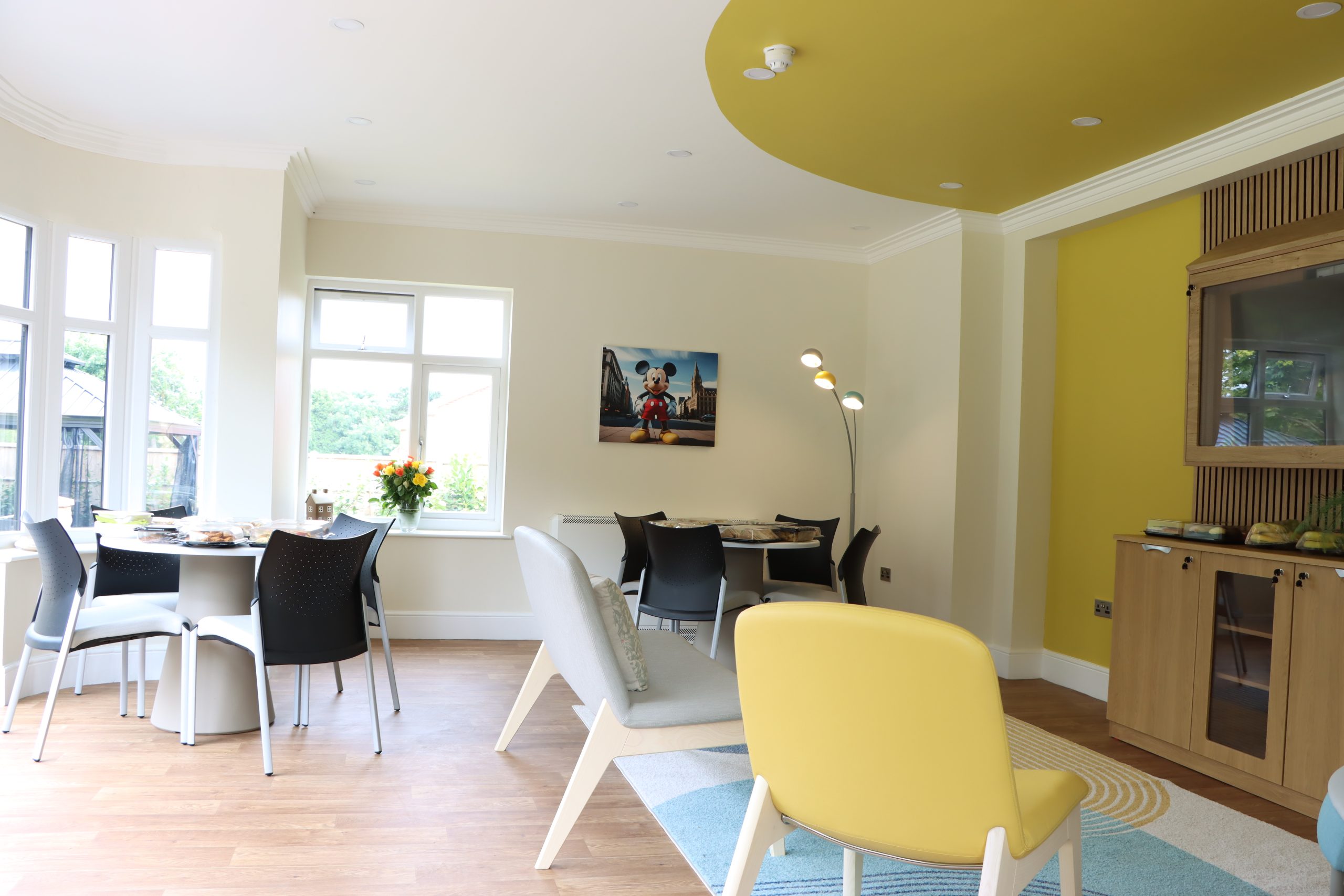
 When it comes to interior design, the goal is often to create spaces that are visually appealing and stylish. However, at Progress Care Solutions (widely referred to as Progress), interior design serves a more profound purpose. It’s about crafting environments that cater to the unique sensory needs of children in care, and Preet Anand, the interior designer behind it all, is passionate about making a difference.
When it comes to interior design, the goal is often to create spaces that are visually appealing and stylish. However, at Progress Care Solutions (widely referred to as Progress), interior design serves a more profound purpose. It’s about crafting environments that cater to the unique sensory needs of children in care, and Preet Anand, the interior designer behind it all, is passionate about making a difference.






